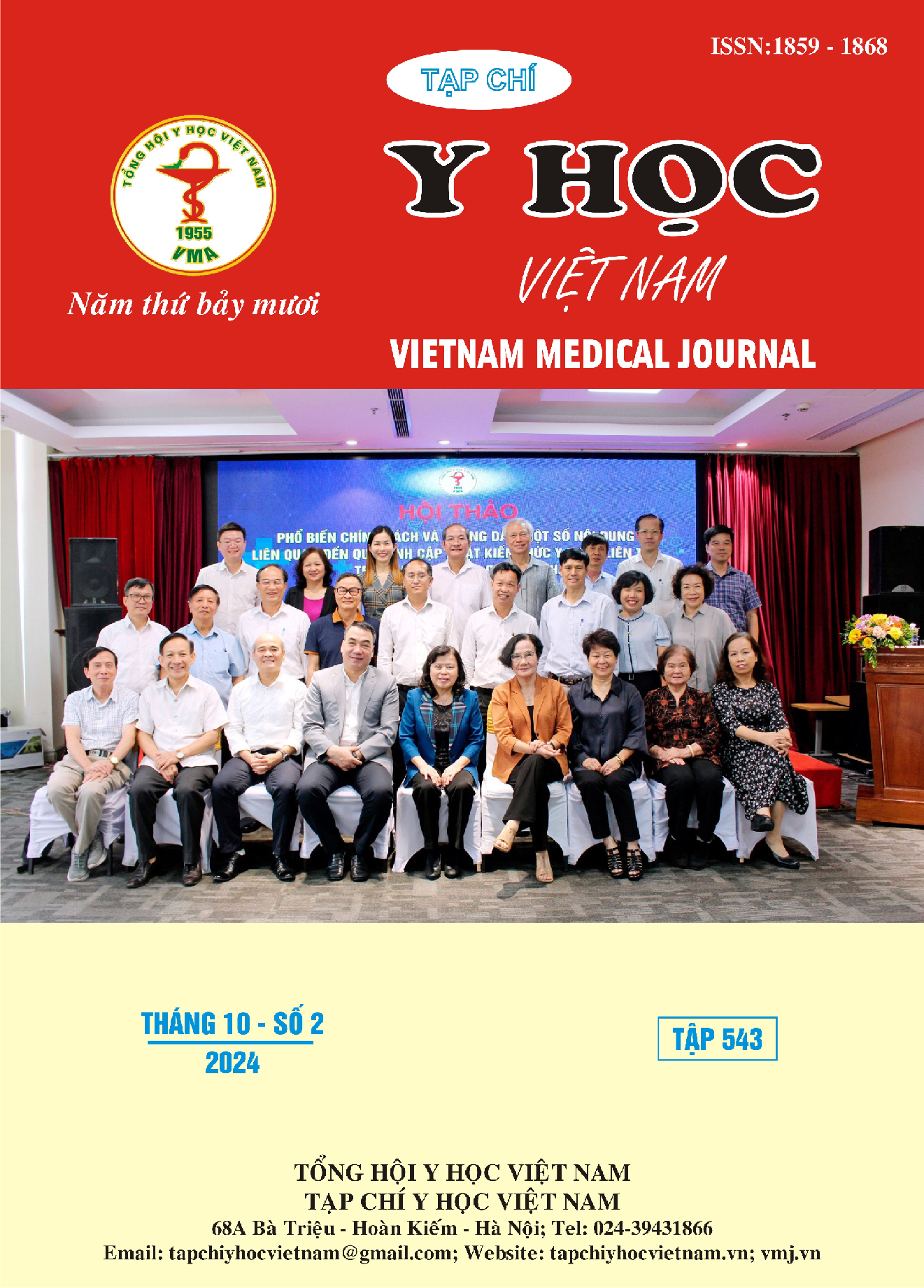HEPARIN RESISTANCE BECAUSE OF LACKING ANTI THROMBIN III FACTOR IN THE CARDIOPULMONARY BYPASS IN PEDIATRIC. CASE REPORT
Main Article Content
Abstract
Overview: Heparin causes anti thrombin III to bind to coagulation factors, leading to inactivation of coagulation factors IIa, IXa, Xa, XIa and XIIa. This inhibition results in an anticoagulant effect. Bolus 300-400 IU/Kg heparin before performing extracorporeal circulation. ACT test is a method used to monitor the anticoagulant effect of heparin before performing extracorporeal circulation, and performing cardiopulmonary bypass when ACT reaches > 480s. Heparin resistance due to anti thrombin III deficiency is one of the main causes in cardiac surgery with cardiopulmonary bypass. This is a case that needs to be treated before performing cardiopulmonary bypass. We present a case of heparin resistance in the case of preparing for cardiopulmonary bypass. Case presentation: Male patient, born in 2021, weight 8.4 kg, diagnosed with transposition of the great arteries (D-TGV), sub pulmonary ventricular septal defect, bidirectional shunt, atrial septal defect, history of ductus arteriosus surgery, widening of the atrial septum, pulmonary artery stenosis, indication for transposition of the great arteries surgery, the patient was bolused 4 times with heparin with a total dose of 4100 IU (490 IU/kg), the highest measured ACT value was 250 seconds. Heparin resistance was diagnosed, so a quantitative AT-III test was performed, the result was 32.8% (normal value is 80-139), the patient was treated with fresh frozen plasma, transferred to intensive care, treated medically. Conclusion: Heparin resistance is a condition that requires treatment in cardiopulmonary bypass, so we give warnings when encountering heparin resistance and have given fresh frozen plasma but still do not reach the required ACT level. And we hope to have alternative anticoagulants in cardiopulmonary bypass such as Bivalirudin and some recommendations from clinical guidelines.
Article Details
Keywords
AT-III, Heparin, cardiopulmonary bypass, bivalirubin
References
2. Cartwright, B. and Mundell, N. (2023), "Anticoagulation for cardiopulmonary bypass: part one", BJA Educ. 23(3), pp. 110-116.
3. Chen, Y., Phoon, P. H. Y., and Hwang, N. C. (2022), "Heparin Resistance During Cardiopulmonary Bypass in Adult Cardiac Surgery", J Cardiothorac Vasc Anesth. 36(11), pp. 4150-4160.
4. Faraoni, D., et al. (2019), "Patient Blood Management for Neonates and Children Undergoing Cardiac Surgery: 2019 NATA Guidelines", J Cardiothorac Vasc Anesth. 33(12), pp. 3249-3263.
5. Finley, A. and Greenberg, C. (2013), "Review article: heparin sensitivity and resistance: management during cardiopulmonary bypass", Anesth Analg. 116(6), pp. 1210-22.
6. Gao, P., et al. (2024), "Development and Validation of a Nomogram for Predicting Heparin Resistance in Neonates and Young Infants Undergoing Cardiac Surgery: A Retrospective Study", Anesth Analg. 138(6), pp. 1233-1241.
7. Goswami, D., et al. (2020), "The Use of Bivalirudin in Pediatric Cardiac Surgery and in the Interventional Cardiology Suite", J Cardiothorac Vasc Anesth. 34(8), pp. 2215-2223.
8. Sarkar, M. and Prabhu, V. (2017), "Basics of cardiopulmonary bypass", Indian J Anaesth. 61(9), pp. 760-767.
9. Shore-Lesserson, L., et al. (2018), "The Society of Thoracic Surgeons, The Society of Cardiovascular Aimenesthesiologists, and The American Society of ExtraCorporeal Technology: Clinical Practice Guidelines-Anticoagulation During Cardiopulmonary Bypass", Ann Thorac Surg. 105(2), pp. 650-662.


